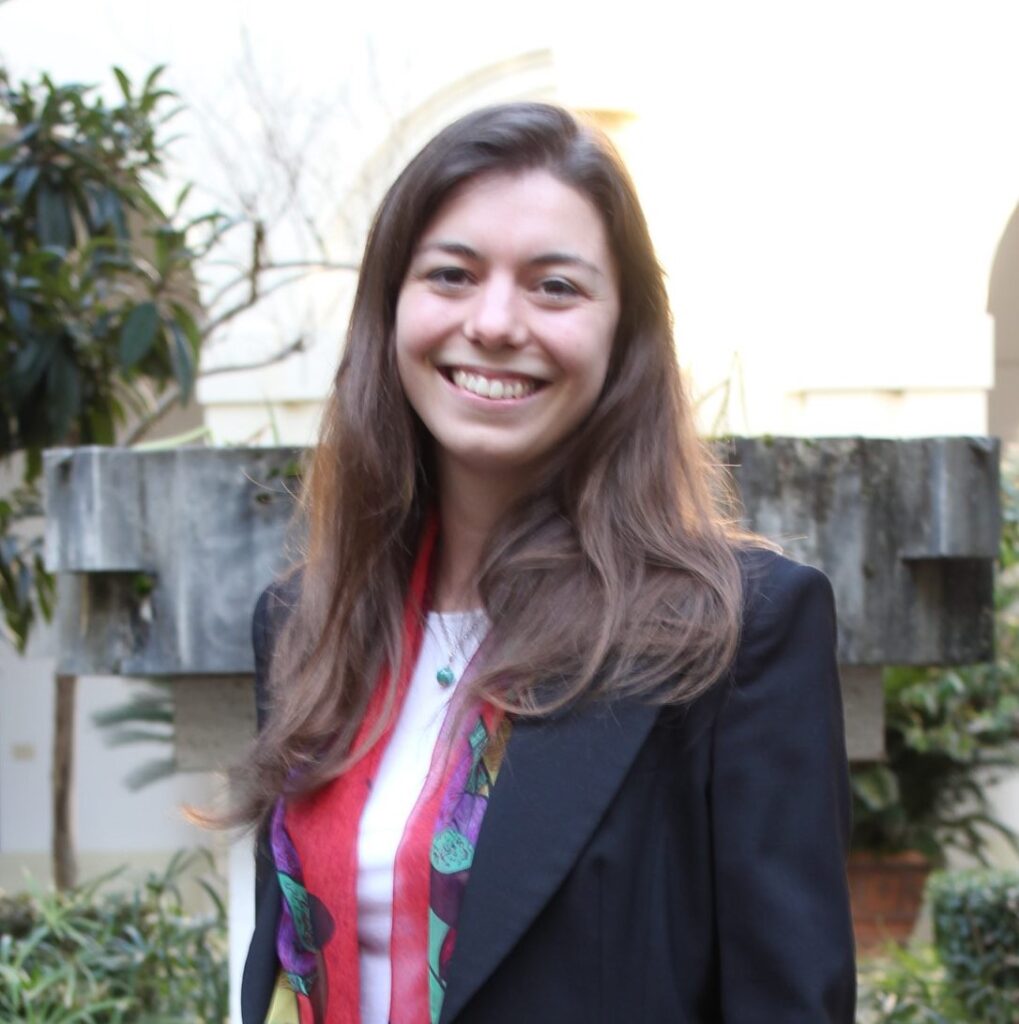St Hugh’s alumna is one of lead authors of paper introducing new tool for restoring and attributing Greek inscriptions using Artificial Intelligence

Congratulations to Thea Sommerschield (Greek History, 2015), Marie Skłodowska-Curie Fellow at Università Ca’ Foscari Venezia and Fellow in Hellenic Studies at CHS, Harvard University who co-authored a paper recently published in Nature. The paper, entitled “Restoring and attributing ancient texts using deep neural networks” introduces Ithaca: the first assistive tool using deep neural networks to aid historians in not only restoring the missing text of ancient Greek inscriptions, but also identifying their original location, and establishing the date they were written.
The work was a collaboration between the Universities of Venice Ca’ Foscari, Oxford and Athens AUEB, and Google’s DeepMind. To make the research widely available to researchers, educators, museum staff and others, the co-authors partnered with Google Cloud and Google Arts & Culture to launch a interactive version of Ithaca for historians to use for their personal research.
Below is an abstract of the published paper below:
“Ancient History relies on disciplines such as Epigraphy, the study of inscribed texts known as “inscriptions”, for evidence of the thought, language, society and history of past civilizations. However, over the centuries many inscriptions have been damaged to the point of illegibility, transported far from their original location, and their date of writing is steeped in uncertainty.
We present Ithaca, the first Deep Neural Network for the textual restoration, geographical and chronological attribution of ancient Greek inscriptions. Ithaca is designed to assist and expand the historian’s workflow: its architecture focuses on collaboration, decision support, and interpretability. While Ithaca alone achieves 62% accuracy when restoring damaged texts, as soon as evaluated historians use Ithaca their accuracy leaps to 72%, confirming this synergistic research aid’s impact. Ithaca can attribute inscriptions to their original location with 71% accuracy and can date them with a distance of less than 30 years of their ground-truth ranges, redating key texts of Classical Athens and contributing to topical debates in Ancient History. This work shows how models like Ithaca can unlock the cooperative potential between AI and historians, transformationally impacting the way we study and write about one of the most significant periods in human history.”
- Link to published paper (open access): https://www.nature.com/articles/s41586-022-04448-z and Nature‘s cover issue.
- Link to Ithaca’s free online interface: https://ithaca.deepmind.com
- Link to the Nature video (also filmed at the Ashmolean!): https://www.youtube.com/watch?v=rq0Ex_qCKeQ
- Link to the open source code: https://github.com/deepmind/ithaca
- Ithaca’s authors: Yannis Assael*, Thea Sommerschield*, Brendan Shillingford, Mahyar Bordbar, John Pavlopoulos, Marita Chatzipanagiotou, Ion Androutsopoulos, Jonathan Prag & Nando de Freitas
